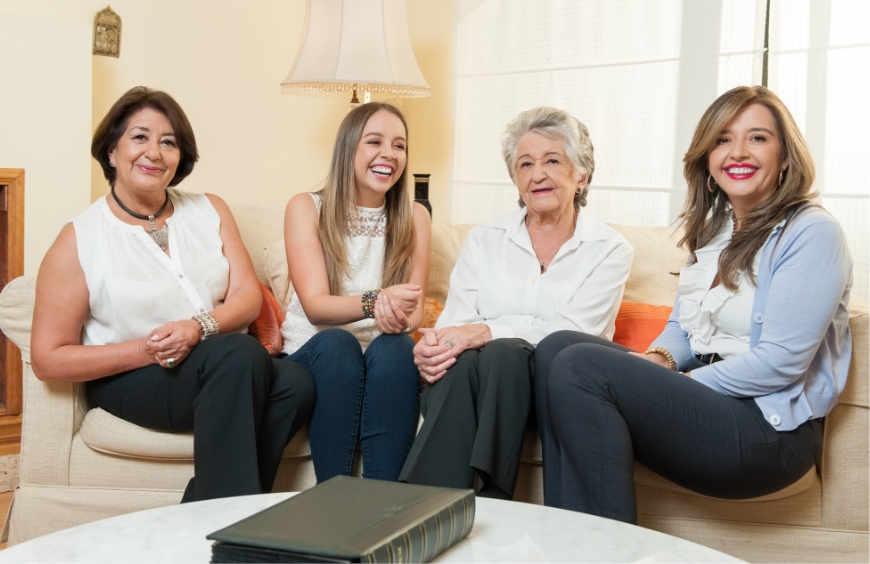Little Talks, Big Impact: A parent education series from the PLC Sydney Well-being Team
At PLC Sydney, we understand the shared goal of parents, carers and educators: to guide our young women as they grow into confident, compassionate and resilient adults. The path can be complex, but one of the most powerful tools at our disposal is also one of the simplest: conversation.

As she finds her way in the world, you remain her most important guide.
Little Talks, Big Impact is a new parent education series designed to support meaningful connection at home. Each edition provides gentle conversation prompts you can explore with your daughter: at the dinner table, on the way to school, or during a walk together. These prompts are grounded in the core themes of our College’s well-being framework: being, becoming and belonging.
Social media and girls
In a recent interview, Jonathan Haidt, author of The Anxious Generation, discussed the impact of social media on young girls, referencing insights from Sarah Wynn-Williams’ book Careless People. A former executive at Meta, Wynn-Williams now shares her concerns about the deep, and often invisible, influence of social media companies on the self-worth of young users.
One alarming insight: if a girl deletes a number of selfies from Instagram, the algorithm detects a pattern of self-consciousness or self-loathing. Instead of offering supportive or affirming content, the algorithm responds by promoting beauty products. The implicit message becomes: “You’re not beautiful. Let us help you become beautiful.”
This troubling cycle, as Naomi Wolf observed decades ago, commercialises a girl’s pain rather than addressing it as a social concern. Her vulnerability becomes a source of profit.
We are already seeing this play out locally. Mrs Watters (Head of Junior School) recently wrote about children as young as 10 asking for beauty products. The founder of skincare company Go-To has also commented on this phenomenon, highlighting a booming market driven by fear rather than self-expression.
What can families do?
Jonathan Haidt offers clear advice: delay access to Instagram and TikTok until age 16, when a young person’s identity and critical thinking are more developed.
Here are some practical strategies for parents and carers:
- Consider delaying smartphone use. Devices such as the G-Mee look like smartphones but restrict access to apps like Instagram or Snapchat. They also omit cameras. Other "dumb phones" offer calls, texts and music, without the internet or app store.
- Join a community. Movements like Wait Mate allow parents to commit to delaying smartphone use, reducing the risk of your daughter feeling left out.
- Be selective with skincare. If your daughter is requesting beauty products at a young age, talk openly about where this desire may come from. Remind her she is beautiful as she is. A gentle cleanser, sunscreen and a tinted lip balm can meet her curiosity without introducing unnecessary routines.
- Use Screen Time controls. Sit with your daughter and install parental controls on her devices. Set a PIN and keep it private. This gives you the ability to manage her app usage and screen time.
- Keep devices out of bedrooms, especially at night.
- Have ongoing conversations. Talk to your daughter about how dissatisfaction can be shaped, and then exploited, by online platforms. Reinforce that your love is not conditional, and that her worth isn’t measured by likes or filters.
- Make screens visible. Be aware that computers can function as phones. Encourage your daughter to do homework in communal areas and ask her to talk you through what she’s working on, not to monitor, but to connect. Surveillance breeds secrecy, but trust fosters openness.
Together, these small, intentional steps can help shift the narrative. When you remind your daughter she is beautiful, out loud and often, it has a lasting impact.Your voice is louder than the algorithm. Our goal is to ensure that children don’t just learn to read; they love to read.
Further reading
- The Anxious Generation – Jonathan Haidt
- Careless People – Sarah Wynn-Williams
- The Social Dilemma – Directed by Jeff Orlowski
For further support or information, please contact the Senior School Well-being Team via Mrs Liz D’Arbon: edarbon@plc.nsw.edu.au

Dr Sarah Golsby-Smith
Head of Learning and Teaching at PLC Sydney
Sarah has also taught in both government and independent schools, as well as across co-ed and both single sex schools i.e. girls schools and boys schools.



